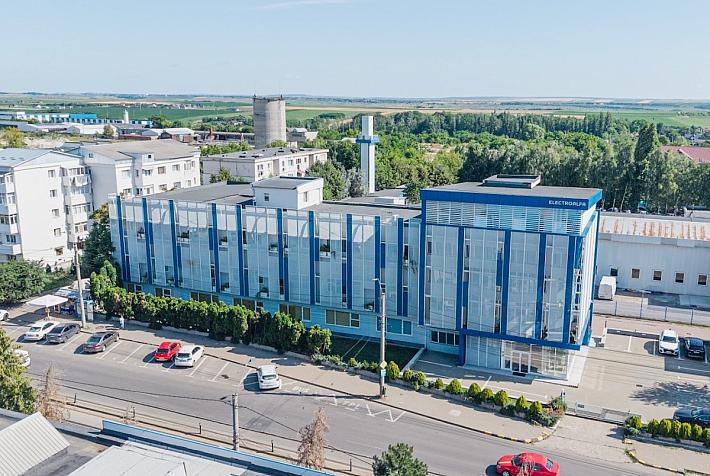Native content supported by SeedBlink
How emerging Romanian start-ups are turning Covid-19 challenges into opportunities

The HealthTech market is undergoing a transition from early-stage disruption to practical application and scaling. Health tech innovators played a key role in the industry’s response to COVID-19 and in digitising medical services. Moreover, there is growing industry recognition for the value delivered by health tech innovators, and those embracing it will likely be well-positioned for success.
With COVID-19 as a catalyst, the health care industry is now undergoing transformations. Innovation is the new name of the game now, the main goals being to optimize access to medical & prevention services, streamline doctors’ work, improve patient outcomes, reduce human error, and lower the costs through amazing web and mobile experiences.
The adoption of these solutions skyrocketed in 2020 as patients, companies, and health services providers increasingly relied on digital health technologies for delivering care during the pandemic, setting the stage for continued growth and innovation in 2021.
Here’s an overview of the state of digital transformation in healthcare:
Telemedicine - on-demand healthcare
When you think ‘on-demand,’ you think about consumers who want things at their own convenience, on their own time, and when it’s about healthcare: when they need it the most.
Healthcare is shifting toward a consumer-driven model that requires streamlined access to specialised doctors. In the on-demand healthcare model, patients ask medical queries as needed – using the smartphone, after hours, during weekends, and much earlier than it would be via scheduling a traditional check-up.
When considering telemedicine services, Medic Chat is a great example of an innovator from the Romanian ecosystem.
“As millennials, we became accustomed to hi-tech solutions like Uber for transport or Airbnb for accommodation. It just felt wrong that access to a doctor would have to be so difficult, and so we began to question why it had to be this way. We quickly realised we were not alone and there was no fundamental reason why you could not use your smartphone to get medical advice. Consequently, we decided to create Medic Chat with the mission to enable anyone in the world to have quick and easy access to the best health advice available.” says Cosmin Dumitrache, co-founder of Medic Chat.
The importance of big data in healthcare
Empowered by big data, healthcare professionals can better interpret and contextualize patient records, enabling new levels of understanding. The ability to understand how a patient will respond to a specific treatment enables clinicians to lower the error rate for choosing the most efficient medication – thus better containing the illness and even increase the chances of surviving, and to improve treatments through investigating possible drug combinations & developing new treatment schemes.
In Romania, big data is changing the way doctors are treating cancer patients through Oncochain, a startup that aims to improve the quality of oncological care.
“We think the pandemic emphasized the need for better collaboration between different institutions within the healthcare system, to help the industry in leveraging the massive amounts of data available, and address the new challenges that the future will inevitably bring. This made us deploy our health IT tools, to facilitate this transformation.” - Roxana Margan, co-founder Oncochain.
The integration of artificial intelligence
Artificial intelligence is not just a digital hype in healthcare. Chatbots and virtual health assistants can serve as means for patients to interact with the system, but the real power of AI can be best observed in areas like precision medicine, medical imaging, drug discovery, genomics, and for establishing a diagnostic, quickly & efficiently.
SanoPass, a platform that digitizes, connects, and integrates all prevention medical services in Romania, plans to integrate AI in diagnostics.
“The Coronavirus pandemic has (maybe) stopped, but it has set in motion a number of industries. I follow closely the development of the market and, in Romania, there is about 1 start-up per month that emerges in the MedTech category.
SanoPass is today the leader of the Romanian MedTech market and this fact makes us responsible for innovating and streamlining the industry. In the first part of this year we aim to launch, exclusively for the Romanian market, an artificial intelligence solution designed to simplify the process of sorting patients and to answer a question often heard “How often does a certain patient go to a doctor?” - says Andrei Vasile, Managing Partner at SanoPass.
Predictive – preventive healthcare in the palm of your hand
The ultimate aim for the digital transformation of health systems globally is to shift the focus from treatment to preventive health & care. Precision health integrates health insights and social determinants to improve clinical and financial outcomes. Recomedica’s online solution provides instant recommendations to doctors, to help with prevention, triage and monitoring, allowing them to analyze patients in real-time.
“Due to the pandemic, we realized how important it is for our users and the doctors we work with, not only the diagnostic part but also the monitoring of more serious diseases. Thus, we have developed new functionalities that will be a real help in this period of crisis. The monitoring platform comes to the aid of patients, but also doctors who are able to keep in touch with them remotely and monitor their symptoms in real time. We also aim to provide the quickest response to medical requests, in order to manage various increasingly urgent situations.” said Eduard Cioroaga, founder of Recomedica.
Did you know the digital health market is expected to grow 600% in the next six years? According to Sifted, there were 626 funded digital health companies across Europe in 2020, and 63% of them were founded in the past five years.
Private investors can support the industry and the innovators in general, through the online investment platform SeedBlink – the easiest way to invest in tech startups. Innovators could bring transformative business models and a consumer-centric approach. However, in addition to bringing in their capital, it is imperative for investors to coach innovators and support them with industry and regulatory expertise, to accelerate toward the future of health, in tandem.
This is native content supported by SeedBlink.












